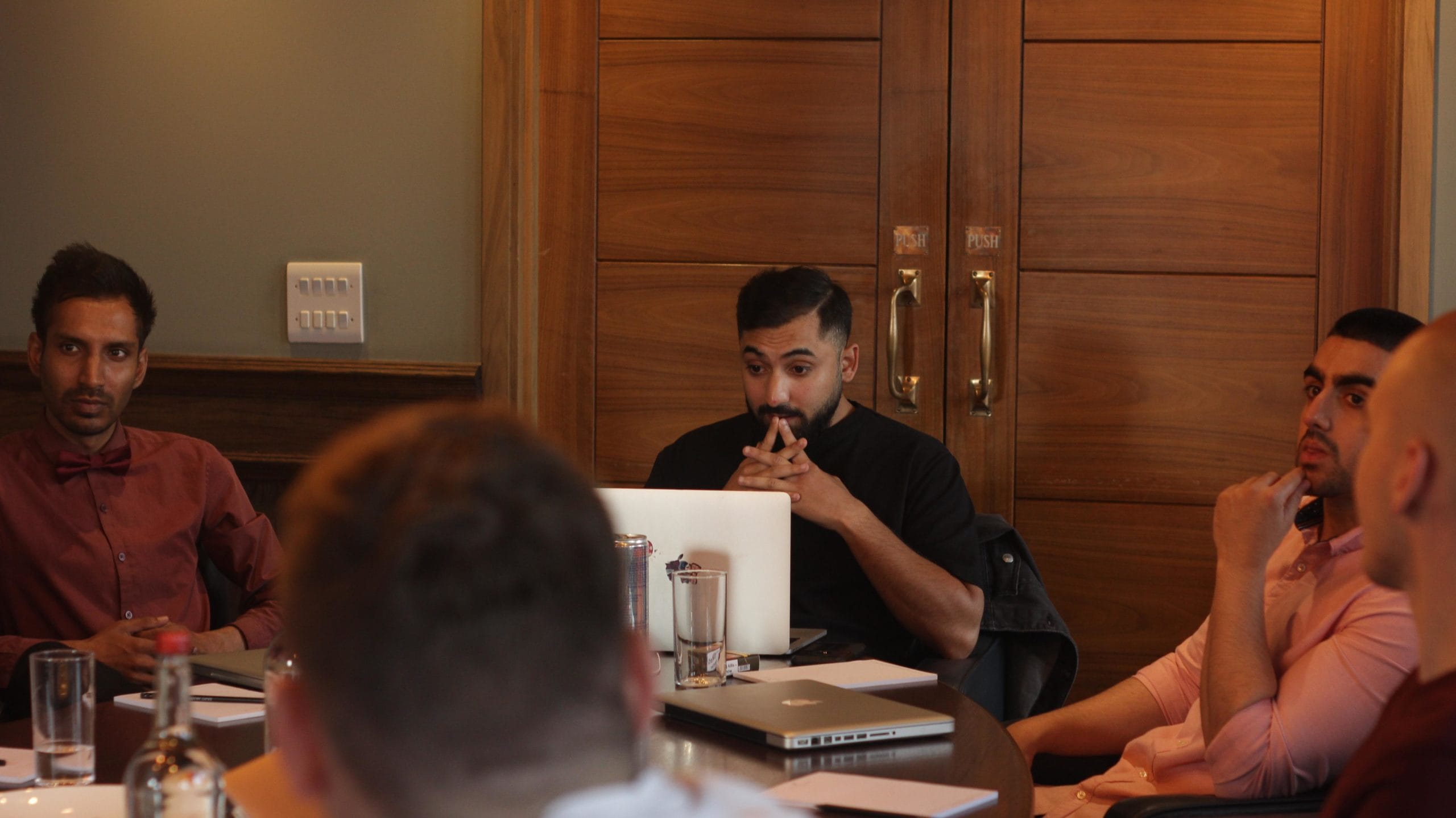
What Happens When Mental Health Issues Get in the Way of Work
No doubt the Olympics would have dominated your screens and news feeds over the past few weeks, and despite the lack of crowds, it was still as impressive a spectacle as always.
As well as the usual headlines that typically accompany any Olympic Games; favourites beaten in the finals, records smashed, decorated Olympians becoming more decorated still, there was one topic that rose to the top of all of our timelines – global superstar athletes speaking out about their mental health.
Issues around mental health in sport are not necessarily a new topic. High-profile elite athletes have been vocal about their struggles with the pressure and stress that come with being in the spotlight for some time – it was only one month ago we saw people rally together to support the England football team after the Euros Final. Yet, when the world’s highest-paid female athlete, Naomi Osaka, and the most decorated gymnast of all-time, Simone Biles cite their mental health as the reason for their poor performance or need to pull out of competition, the world takes notice.
While no one would wish poor mental health on anyone, sportsperson or otherwise, the fact that Osaka and Biles were unable to carry out all or part of their job highlights a tricky issue with employers: how to support an employee’s mental health needs before it affects their ability to do their job.
Discussing the elephant in the room
The issues faced by both Osaka and Biles are public examples of the issues many companies are increasingly facing internally, within their own four walls (and beyond if you consider the rise in working from home).
Gone are the days of not addressing how you’re feeling or putting on a brave face. Today’s younger workforce is more likely to start conversations about their mental health struggles than their older colleagues. While it may seem businesses and industries are celebrating mental health awareness more than ever, in reality, management teams are finding it difficult to adapt. Many are simply unwilling to acknowledge the issues that exist.
The symptoms related to poor mental health can be ambiguous, individual, and unpredictable which makes accommodating these issues difficult for employers and can often lead to a disconnect between employers and their staff.
In fact, a McKinsey & Co survey published earlier this year found that 65% of employers believed that their employee’s mental health was supported well or very well, while only 51% of employees agreed this was true.
Taking the digital and tech sectors as an example, stress, anxiety, depression, and a range of other mental health issues have grown to such an extent that professionals within the space are up to five times more depressed than the UK average.
“Take a look at small infrastructural changes
that could make a big difference”
Burnout and imposter syndrome among tech and digital workers has grown steadily over the years as they struggle to keep up with the ever-developing sector and the demands that coincide with this rapid change.
Growing customer-bases, pressures to be online 24/7, new competitions popping up seemingly every day and it’s no wonder tech and digital professionals are feeling the strain.
Throw in working patterns shifting significantly, post-lockdown anxiety growing, ‘zoom fatigue’ settling in, less face-to-face time with colleagues and pressures from juggling work and home life – let’s just say it’s been a challenging journey for employees and employers to navigate.
“Simple changes to culture and workplace practices
will go a long way towards creating a more level playing field.”
The impact on talent attraction and retention
More than ever, companies that are vying for younger talent must adapt and embrace the generational openness surrounding mental health. As demand for mental health and neurodiverse-inclusive workplaces increases, as do the stakes for employers as they compete for the best talent.
Tackling mental health at an individual level is a genuine challenge, and while many companies will work to accommodate mental health needs, there can be limits to their policies – while others make no accommodations at all. Some worry that granting accommodations to one employee’s needs, rightly or wrongly, could set precedents or lead to animosity among the rest of the team.
“Employees are now expecting to be fully supported by their companies – if they don’t they’re looking elsewhere.”
In addition, some employers may see the increased awareness around mental health and assume the solution involves increased costs to meet their teams’ demands: free support, counselling and other employee assistance programmes/initiatives. Despite these all being initiatives that can support an individual, having meaningful conversations with your colleagues is completely free. Take a look at small infrastructural changes that could make a big difference and encourage conversations across management teams to find out what is and isn’t working.
In 2021, employees are now expecting to be fully supported by their companies should they need it. And if they don’t feel they’re getting it, they’re starting to look elsewhere to companies that established have policies and support in place for their teams.
We exist at a time where the best candidates are at a premium, so investing in supporting your teams’ mental health could be a small price to pay if you’re to keep them happy, engaged and healthy.
Level the playing field
Whilst encouraging employees to have healthy and constructive conversations surrounding mental health is crucial, companies have to learn to manage their staff and policies effectively for a chance at success.
Does your business have a mental health charter? What protections are in place to support colleagues who are struggling and how robust are they? Is mental health respected as much as physical health?
For example, if an employee were to break an arm, they’d likely discuss the ordeal with their colleagues. However, there is still the question of whether an employee who discusses having an anxiety attack on their way to work would receive the same degree of openness.
“In reality, management teams are finding it difficult to adapt while many are unwilling to acknowledge the issues”
Simple changes to culture and workplace practices, plus educating teams on what to look out for and how to have sensitive conversations will go a long way towards creating a more level playing field.
That said, talking a good game is a lot easier than doing the work, especially for employers unwilling to make a change. The question surrounding what happens when mental health issues affect an employee’s ability to do their job remains a key one for employers, and one which many are not yet able to answer.
Incremental changes to culture and workplace practices can go a long way towards creating inclusive environments. Invest in empowering your teams to be more aware and how to have compassionate conversations. Mental health first-aiders are also increasingly common in workplaces alongside regular first aiders.
Finally, the important thing to remember is that we are living through a time unlike any other in human history, and our sense of “normality” has never been so upended. Compassion and patience can go a long way to making your team feel more comfortable about their mental health in the workplace – and if we’ve learnt anything this past 18 months it’s that we all need to look out for one another.
For more information about supporting yourself and your employees’ mental health in the workplace and at home, please visit: Mental Health at Work U.K. or WHO Mental Health: Model of Action.
If you are interested in hearing more about making your workplace more inclusive then give us a follow or have a look here.
Looking to build or expand your team with the best digital talent? Check out how our new Products and Services can support you here
Are you a Digital Analytics, Programmatic, Cloud Computing or Data Science practitioner who is looking for a new career step at the moment? Check out our latest live vacancies here



